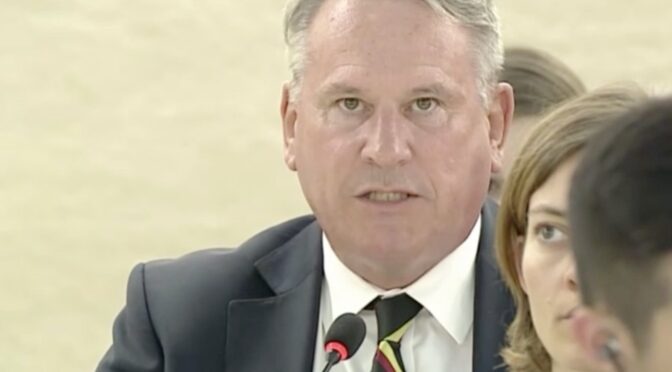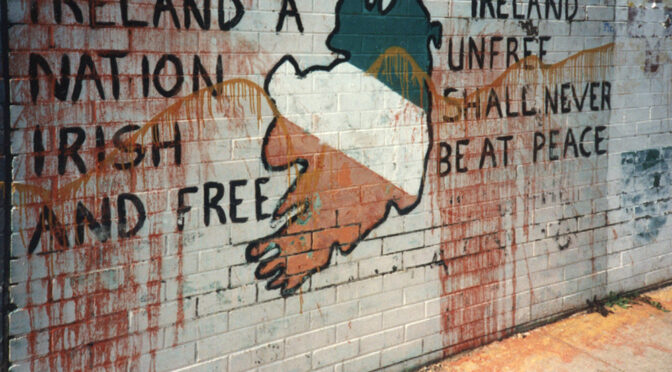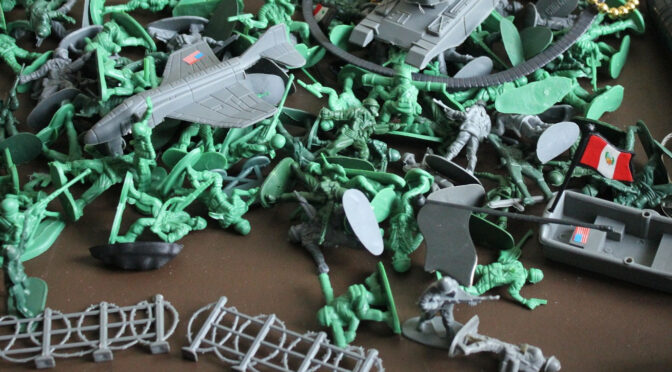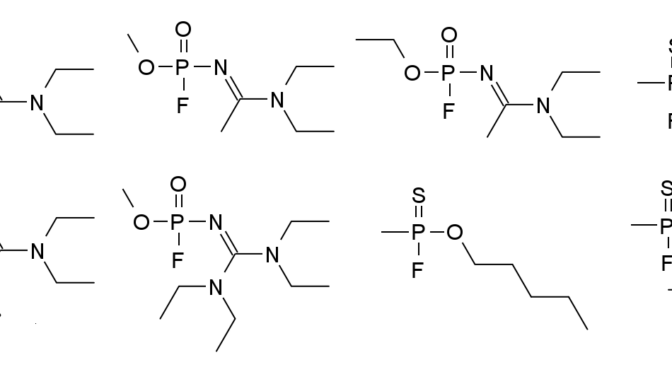Richard Kemp speaking at the UNHCR emergency session on Gaza, 18 May 2018. To view a transcript of the speech, click here.

Richard Kemp speaking at the UNHCR emergency session on Gaza, 18 May 2018. To view a transcript of the speech, click here.

Speech made by Colonel Richard Kemp at the emergency session of the United Nations Human Rights Council on the deteriorating situation in Gaza on 18 May 2018
I commanded British troops in Afghanistan, Iraq, the Balkans and Northern Ireland and served with NATO and the UN. I’ve come straight from the Gaza front line to share my assessment.
Based on what I observed, I can say that everything we just heard here is a complete distortion of the truth. The truth is that Hamas, a terrorist organization that seeks the destruction of Israel and murder of Jews everywhere, deliberately caused over 60 of its own people to get killed.
They sent thousands of civilians to the front line — as human shields for terrorists trying to break through the border. Hamas’s goal, in their own words, was, quote, ‘blood… in the path of Jihad’. I ask every country in this Council: you have all been telling us that Israel should have reacted differently. But how would you respond if a Jihadist terror group sent thousands to flood your borders, and gunmen to massacre your communities?
Your failure to admit that Hamas is responsible for every drop of blood spilt on the Gaza border encourages their violence and use of human shields. It makes you complicit in further bloodshed. If Israel had allowed these mobs to break through the fence, the IDF would then have been forced to defend their own civilians from slaughter and many more Palestinians would have been killed.
Israel’s actions therefore saved lives of Gazans; and if this Council really cared about human rights, it should commend the Israel Defence Force for that, not condemn them on the basis of lies.

Article published in The Daily Telegraph, 16 May 2018. © Richard Kemp
On Monday the Iran-backed terrorist organisation Hamas achieved its baleful objective when more than 50 people were killed. This is what it had hoped for when it dispatched thousands of Gazans, including women and children, to the border with Israel under orders to break through the fence. This carefully planned operation – which continued on Tuesday – had nothing to do with protest or the so-called right of return of Palestinians to Israel. It was only about grabbing headlines and creating a situation that the Israel Defence Force had to deal with by lethal force.
Knowing they cannot defeat the IDF by military means, this has been Hamas’s long-term strategy: to cause international outrage aimed at isolating Israel. Previously it has fired rockets and dug attack tunnels, both intended to murder Israeli civilians, leaving the IDF with no option other than to defend its people with force. Hamas’s use of human shields in each of these situations guaranteed civilian deaths.
Hamas has brought these tactics to a new and sickening low in recent weeks, making its human shields the actual weapons of war, with inevitably bloody consequences. This is the first government in history that has deliberately sought to compel its enemy to kill its own people.
You have only to look at yesterday’s world headlines to see that these tactics are more effective than before. While Western commentators, human rights groups and politicians can recognise rockets and attack tunnels as aggressive military actions, it is harder to understand the same thing of apparent demonstrations such as are frequently seen in most capital cities of Europe.
How has the IDF responded to this aggression, which in reality is very far removed from anything seen so far in Europe? Over recent days, I have visited IDF commanders and snipers at the border and Continue reading
Article published by the Gatestone Institute, 13 May 2018. © Richard Kemp
I predict a riot — and much worse. The Palestinian terrorist group Hamas is orchestrating a ‘demonstration’ at the beginning of this week of up to 200,000 people on the Gaza border with Israel, and is intent on turning it into an orgy of death and bloodshed. If that happens, the UN and EU, human rights groups and many Western media organizations will have helped bring it about.
Hamas, which governs the Gaza Strip, is planning the bloody culmination of six weeks of violence along the border that has so far led to the deaths of around 50 of their own people and wounding of hundreds more. Now they intend to pile the bodies higher still, exploiting what they see as a perfect storm. It is the seventieth anniversary of the creation of the modern State of Israel — a date that Palestinians revile as ‘Nakba’ or ‘Catastrophe’ Day. It coincides with the opening of the US embassy in Jerusalem, a move abhorrent to those who consider the existence of the Jewish State illegitimate. And it is the beginning of the Islamic festival of Ramadan, a time when violence throughout the Muslim world often spirals.
Hamas claim that the purpose of their ‘demonstrations’ is to break through the Israeli border en masse, march through the country and reclaim the homes that they say their people were thrown out of when Israel was formed — exercising the strongly disputed ‘right of return’. But they know they cannot achieve that in the face of the formidable Israel Defence Force.
So the true and malevolent purpose of Hamas’s plan is to incite violence in such a way that the IDF has no choice but to respond with lethal force, killing Gaza civilians. This makes Hamas the first government in history to deliberately lure its enemies to kill its own civilian population. Why does it wish to sacrifice its people so barbarically? To bring down upon Israel the vilification of the Western world. To isolate and criminalise the country and cause condemnation by political leaders, the UN and the EU, human rights groups, academics and the media.
Hamas has followed this strategy many times in the past, firing rockets at Israeli civilian communities and constructing under the border sophisticated attack tunnels from which fighters would storm into the heart of Jewish communities and carry out mass murder and abduction. Thousands of Palestinians have died, including human shields that are so central to Hamas’s strategy, as the IDF has been compelled to forcefully defend its people. The world has often reacted with horror and outrage, blaming Israel for the bloodshed provoked by Hamas — just as intended.
If anything, Hamas’s current plans are even more effective. Rockets and attack tunnels look like what they are — engines of war. But political leaders, international organizations, human rights groups and the media — the primary targets for Hamas’s lethal propaganda — find it hard to understand how demonstrations, falsely portrayed as peaceful, like they might see in their own cities, can pose a sufficient threat to warrant the use of deadly force. Continue reading

Article published in The Daily Express, 12 May 2018. © Richard Kemp
I’m sick of hearing soldiers who fought to protect the citizens of Northern Ireland being compared with terrorists who set out deliberately to murder, maim and intimidate those same citizens.
Our soldiers volunteered to serve their country and were sent to Northern Ireland, often living in filthy, cramped conditions, working round the clock to the point of exhaustion, patrolling day and night through cities, villages and open country, in rain, cold and mud, carrying heavy equipment and all the while facing death and maiming.
Patrolling through the rat-runs of the Divis Flats in Belfast, they had fridges dropped on to them from the walkways above, bins emptied over them, were spat at, cursed and had bags of urine or faeces hurled at them.
That was the easy part.
On patrol in Belfast my friend Private Steve Gill lost both legs, half an arm and an eye in a bomb attack and his mates were blown across the street covered in his blood and gore.
Steve was lucky: a few weeks earlier Nick Peacock, also from our battalion, the 2nd Royal Anglians, was killed by another bomb not far away.
Both little more than boys, they knew the risks they faced yet cheerfully stood between the most deadly terrorists on earth and the defenceless civilians they wanted to murder.
How can there be any comparison between these brave men and the mendacious killers who carefully put together, positioned and set off the Semtex bombs that killed and maimed them and countless others? Continue reading

Article published in The Daily Mirror, 25 April 2018. © Richard Kemp
The British Army is shockingly undermanned as a result of years of savage defence cuts by successive governments. They know they can get away with such irresponsibility with electoral impunity. But their attitude is short-sighted.
The armed forces serve two purposes. The first is to show strength and resolve to defend ourselves at home and overseas and stand by our allies when they are threatened. This is a deterrent against aggressors. Strong deterrence reduces the likelihood of war. If our forces and the resolve of our politicians to use them is weak it makes war far more likely. Short of war the Salisbury nerve agent attack — the first such strike anywhere in Europe — shows us the liberties Putin is ready to take with a country he sees as weak.
The second purpose is to do the actual fighting. History shows us that if the forces are under-manned and under-funded that leads to unnecessary casualties and failure. British governments too often hope they will get away with keeping their fingers crossed that we won’t be seriously threatened before their term is up. British soldiers are the ones who eventually pay the price for such neglect with their blood.
One example of under-funding is the government’s disastrous recruitment programme, outsourced to Capita. Everyone — including many serving officers — recognise that this has been a disaster but don’t have the funds to deal with it. I know first hand how appalling it has been, having spent many frustrating hours trying to help potential recruits to penetrate the bureaucracy of the civilianised recruiting system — and often failing, despite my own experience of the military system.
The consequence of all this is the undermanning we see today which represents a political betrayal of our army and our country by those we elect above all to ensure we are properly defended.

Article published in The Daily Express, 14 April 2010. © Richard Kemp
The UK National Security Adviser, Mark Sedwill’s, conclusion that ‘it is highly likely that the Russian state was responsible’ for the nerve agent attack against the Skripals reads at first glance as less than conclusive. But for years I was responsible for writing such letters and in reality the words ‘highly likely’ mean that Sedwill is certain of Russian culpability. No matter how strong the intelligence, it is rare for it to be described as fact, as the nature of intelligence means there usually has to be some possibility of error.
Sedwill’s letter draws on secret intelligence, diplomatic reporting and open source material analysed by the Joint Intelligence Organization (JIO), a Cabinet Office body whose responsibility is assessment of intelligence independent of the agencies that collect it.
The JIO produced the dossier used by Tony Blair to justify war against Iraq, and some people see that as a reason not to believe the government over the Skripal case and over the assessment of Assad’s culpability for the chemical weapons attack in Douma.
But if anything the Iraq precedent — in which errors were made both in the intelligence and its presentation — means an error is much less likely today. The JIO and the intelligence agencies all underwent wide-ranging reforms over many years to avoid repetition of what happened with Iraq.
The only fact that Sedwill’s letter points to is the nature of the nerve agent used, Novichok, confirmed through scientific analysis by both Britain’s experts and the OPCW. For everything else, he relies mainly on secret intelligence. And although Sedwill has taken the unusual step of revealing some extremely sensitive intelligence we can be sure there is more material, too sensitive to be spelt out in a public document.
Sedwill’s intelligence shows that Russia produced Novichok and lied about it in their declaration on joining the Chemical Weapons Convention. It also shows Russian trials that included using chemical weapons on door-handles to assassinate people — the method seemingly used against the Skripals. On motive, cyber intercepts confirm Russian intelligence interest in the Skripals going back to 2013. Continue reading
Article published in The Daily Express, 9 April 2017. © Richard Kemp
If the latest chemical attack in Syria is verified, the US should hit back and Britain must play a leading role.
President Trump’s cruise missile strike following a Sarin nerve agent attack one year ago failed to deter Assad which means much stronger action is needed this time.
Russia’s presence makes the risks of escalation greater. Assad is counting on that to deter Western retaliation.
We should not fear Russia but we should avoid hitting their forces on the ground in Syria.
There are even bigger stakes. President Obama’s failure to enforce his red line against Syrian chemical weapons use in 2013 emboldened not only Assad but also Russia.

Article published by Israel Hayom, 1 April 2018. © Richard Kemp
Are we no longer allowed heroes? The 2017 film Churchill is nothing less than a character assassination of the man who led Britain to victory in World War II. The movie 7 Days in Entebbe, released last week in Israel, gives similar treatment to the hero of the dramatic rescue, Lieutenant Colonel Yoni Netanyahu. The film is based on a book about the raid by the distinguished British historian Professor Saul David.
Incredibly, in an interview last week, David seemed to suggest that the German terrorists at Entebbe played a greater role than Netanyahu in saving the hostages’ lives. He claims they had second thoughts, deliberately sparing the hostages when they could have killed them.
Why? Because they had developed empathy for their captives and ‘it wouldn’t have looked good for Germans to kill Jews again, after the Holocaust’. Look good to whom? It doesn’t add up. They had seized Jewish hostages at gunpoint, conducted a ‘selection’ chillingly reminiscent of Auschwitz, and were members of a rabidly anti-Semitic terror group, the Revolutionary Cells.
Meanwhile, David dismisses Netanyahu, claiming his research shows he ‘was not a central figure in the planning of the operation’. Yet Netanyahu’s Sayeret Matkal comrades who were there describe him as ‘the father of the operation’, confirming that he did in fact plan the rescue in meticulous detail after being given orders by Brigadier General Dan Shomron, the overall commander, to take over the airport terminal and release the hostages.
In trying to second-guess Netanyahu’s actions at Entebbe, David shows that even the most assiduous academic cannot necessarily perceive the reality of close military combat. He says: ‘Ultimately, the operation succeeded thanks to luck more than anything else.’ This is blatantly wrong. But David should not be surprised that luck played a part. Anyone who has experience in battle knows how crucial it is – one of the most successful commanders of World War II, General George S. Patton, even nicknamed his US 3rd Army ‘Lucky’.
Combat is all about creating luck and getting on top of chaos. As we say in the British Army, no plan survives contact with the enemy. Continue reading

Article published in The Spectator Australia, Saturday 17 March 2018. © Richard Kemp
He died in 1900, but my great grandfather, Archibald Richardson, outback explorer and early Rockhampton pioneer, is even today spoken of with respect in central Queensland. To me though he is a grave disappointment. I’ve been bragging about being descended from a criminal transported to the Australian colonies. But I learn from the Rockhampton Historical Society that Richardson made the journey of his own volition, destroying any street cred I had down under.
*
Shortly after I arrive in Sydney news breaks that Israeli intelligence foiled an Islamic terror plot to blow up a passenger plane flying out of here last year. I know of many other times Israeli intelligence has saved the lives of Australians – as well as Brits, Americans and Europeans – in our cities and on the battlefields of Iraq, Afghanistan and Syria. The Israelis are not alone in their impressive track record against jihadists. The ‘Five Eyes’ intelligence system enables seamless cooperation between Australian, New Zealand, British, US and Canadian services. Asio and Asis, like their MI5 and MI6 counterparts in the UK, have prevented many more terrorist plots than have succeeded.
*
In TV and radio studios I’m asked the question: what do we do about Islamic State returners? My answer is the one I give in Britain: ban them. They chose to join an orgy of mass murder, torture and rape in the Middle East; let the ones we cannot kill with airstrikes rot there rather than return and threaten people here. To snowflakes who complain this breaches their human rights, I reply that no sane government would allow the rights of these savages to take priority over those of their innocent Australian victims.
*
Europe could learn a thing or two from Australia about putting a stop to the mass illegal immigration that jihadist groups use as a Continue reading